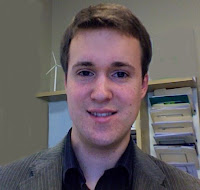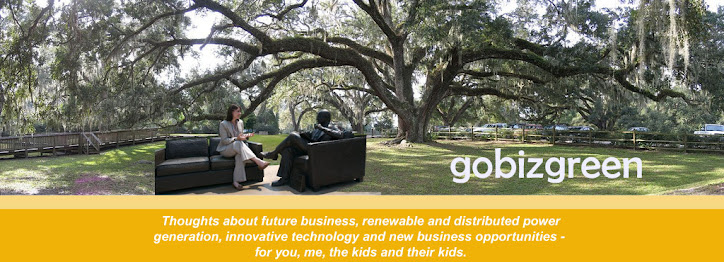I found this in my inbox this morning, posted on the blog Watthead which quotes Congresswoman Doris Matsui. And it shows how the world can start to turn when effective leadership is in place.
"As a member of the House of Representatives' Energy and Commerce Committee, I just wanted to take a moment out of the hearings we are holding today to discuss the comprehensive climate change bill, and give you a quick update about what is happening here in Washington.
In the last few days alone, more action has been taken on climate change than in the entire eight years of the Bush presidency. On Friday, the Environmental Protection Agency (EPA) announced the findings of their scientific review, which recognized that global warming threatens both public health and public welfare, and that greenhouse gas emissions are influencing everything from crop failures to more intense heat waves that we are seeing in my hometown of Sacramento.
Yesterday, we started hearings in the Energy and Commerce Committee on the comprehensive climate legislation put forth by Chairmen Henry Waxman and Edward Markey. When passed, the American Clean Energy and Security Act will allow our children and grandchildren to live in a country that is more sustainable, more economically viable, and more efficient than the country we live in today."
We had high hopes for our Rudd Government and its claims when elected in 2008, but it seems the baton has passed to Obama, while we in Australia are still pursuing the elusive "clean coal" strategy and busy building money moving emissions reduction systems.
Thursday 23 April 2009
Sunday 19 April 2009
Driving to A Better Place
 Shai Agassi, a former software entrepreneur from Israel, is the founder and CEO of A Better Place, which is committed to building global transport infrastructure to support the widespread use of electric cars. Shai was inspired to take on this role by the Prime Minister of Israel, who pointed out that “saving the planet” was somewhat more important than running a large IT corporation. His first project is a partnership with Renault and the government of Israel and the challenge is “breaking the world’s fossil-fuel habit ”. Other areas that are targeted for his renewable charging and battery swap networks are Denmark, Eastern Australia and two areas of the USA, California and Hawaii.
Shai Agassi, a former software entrepreneur from Israel, is the founder and CEO of A Better Place, which is committed to building global transport infrastructure to support the widespread use of electric cars. Shai was inspired to take on this role by the Prime Minister of Israel, who pointed out that “saving the planet” was somewhat more important than running a large IT corporation. His first project is a partnership with Renault and the government of Israel and the challenge is “breaking the world’s fossil-fuel habit ”. Other areas that are targeted for his renewable charging and battery swap networks are Denmark, Eastern Australia and two areas of the USA, California and Hawaii.Shai Agassi ranks as one of my green business heroes because he taking leadership and risk. No-one knows whether his approach will ultimately be the right one – but he moves forward and takes action because he understands we have no time for more debate - it’s time for action. Check out Shai’s vision on TED TALKS.
pic of Shai Agassi ex Flickr by jdlasica.
Gracious and green funerals
 If we are serious about energy efficiency, then no aspect of living is off the agenda. So what about the other end of life – where we need to dispose of our bodies with dignity but also with serious consideration for those who remain.
If we are serious about energy efficiency, then no aspect of living is off the agenda. So what about the other end of life – where we need to dispose of our bodies with dignity but also with serious consideration for those who remain. There is an increase in number of deaths, mainly due to the early baby boomers reaching “that age”, and some places such as Perth, WA, are in the grip of a graveyard shortage. Where do we find the space to bury or place cremated remains of the estimated 56 million people around the planet who die each year? The funeral business is booming, but at what cost?
According to GreenPlanet, 50 million trees are cut down each year in India for funeral pyres, and 1.6 million tons of concrete are buried in the US each year in the construction of vaults. Maybe we could turn some of this around? A town called Halmstat in Sweden proposed a new source of heat for one business and for the surrounding houses. The local crematorium would provide an endless and reliable source of heat from its primary activity of cremating bodies. Would this be acceptable in your community?
In many places we now have ranges of eco-friendly coffins and we control the emissions from cremation, but there is still a long way to go. And as demand grows, there will be new business opportunities in finding energy efficient and planet enhancing ways to manage bodies no longer in use. Consider this when you are bequeathing your material possessions to your loved ones – think of how to manage your final exit in a way that benefits rather than harms their environment.
pic ex Flickr Global Green Expo, Jersey City (biodegradable coffin) by goodrob13
Saturday 18 April 2009
Solar Energy Cheaper than Coal Fired Power
While the Government in Australia is focusing on so called "clean coal", yet another company in the USA is focusing the sun to generate power at much less cost than coal. Check out this link to a short video here.
Friday 10 April 2009
iMiEV for green business owners
Mitsubishi now has a plug-in electric car, the iMiEV, fully approved for Australian roads, and we may see these on Australian roads next year, according to an ABC News article. The initial comments from those interested reflected the concern about the energy use - mainly because our energy in Australia primarily comes from coal fired power stations. My point is that having a fully electric available to purchase at a dealer is something many of us want. We need transport in our businesses, but we want to move away from fossil fuels in our lifestyles.
Maybe the answer is simple - ensure that all charging of electric cars is done by renewable energy, then there is no problem, just a need for more power generated by truly renewable sources. So bring on the iMiEV's and where's my solar wind or wave power charging station?
Maybe the answer is simple - ensure that all charging of electric cars is done by renewable energy, then there is no problem, just a need for more power generated by truly renewable sources. So bring on the iMiEV's and where's my solar wind or wave power charging station?
Thursday 9 April 2009
Jesse paints a picture..
 Jesse Jenkins is an energy and climate policy analyst, activist and blogger located in the USA, working with the Breakthough Institute and he writes his own blog WattHead.
Jesse Jenkins is an energy and climate policy analyst, activist and blogger located in the USA, working with the Breakthough Institute and he writes his own blog WattHead.This morning I was contemplating why we in Australia are so obsessed with our proposed Carbon Pollution Reduction Scheme, and Jesse effectively sums up my concerns and directions, so below are few quotes taken randomly from his recent posts:
Jesse Jenkins: "Yes, we need new regulations and a price on carbon. But consider this: the United States did not invent the Internet by implementing a cap and trade system on fax machines. We didn't invent microchips by taxing the slide rule, nor did we create the personal computer by regulating typewriters. Rather, your computer, your cell phone, your iPod -- all of these revolutionary and now ubiquitous technologies were originally invented by direct federal investments supporting the relentless innovation of scientists, engineers, and entrepreneurs just like yourself."
"The ultimate effectiveness of a strategy premised centrally on an effort to make dirty energy more expensive will always be limited by this fundamental reality of the political economy of energy -- which we at the Breakthrough Institute have dubbed 'Global Warming's Gordian Knot.' If the price of carbon must rise too high to drive emissions reductions, various cost containment mechanisms or public backlash will kick in -- either of which effectively abrogates the emissions cap. Yet if we constrain the price of carbon, it will have very little impact on emissions absent a steady supply of low-cost emissions
reductions opportunities."
"President Obama and Speaker Pelosi have it right: a "New Apollo Project" for clean energy -- at least $150 billion in direct public investment over ten years, funded by modest carbon pricing or deficit spending -- is far more robust than pollution regulation. Whereas a debate about carbon regulation emphasizes economic costs and increased energy prices, a debate about clean energy investment puts the enormous public benefits at the front and center: creating millions of jobs, promoting U.S. growth industries and competitiveness, developing new energy technologies, and securing the nation's energy independence."
pic of Jesse Jenkins from the ABOUT page of BreakThrough Institute
Wednesday 1 April 2009
End of the Coal Era
Around the coffee shops and dinner tables of Australia, using coal to generate power is becoming a talking point, second only to the recession. So Australia's plans to double the export capacity of our major coal exporting port is a hot topic. Spending is one way to stimulate the economy, but is this the type of infrastructure spending we need? According to today's SMH newspaper, Professor Peter Newman, a member of Infrastucture Australia says that these new coal loading facilities "should be stopped". He added that "coal will be a declining export for Australia".
He is not alone in this view. In his latest work "Quarry Vision, Coal, Climate Change and the end of the Resources Boom" , environmental strategist Guy Pearse comments on the volume of coal laden trains headed for our ports - "we understand that for every large bite taken from the earth to fill those trains, a very harmful belch occurs somewhere else in the world".
Around the world, development of new coal fired power plants are being blocked or delayed in lengthy court processes. Let's rethink - let's spend our limited infrastructure spending on new ways to generate energy, such as renewable power, bio-energy and energy efficiency. And let's find new ways to export sunshine!
He is not alone in this view. In his latest work "Quarry Vision, Coal, Climate Change and the end of the Resources Boom" , environmental strategist Guy Pearse comments on the volume of coal laden trains headed for our ports - "we understand that for every large bite taken from the earth to fill those trains, a very harmful belch occurs somewhere else in the world".
Around the world, development of new coal fired power plants are being blocked or delayed in lengthy court processes. Let's rethink - let's spend our limited infrastructure spending on new ways to generate energy, such as renewable power, bio-energy and energy efficiency. And let's find new ways to export sunshine!
Subscribe to:
Posts (Atom)


